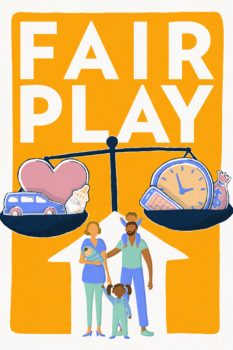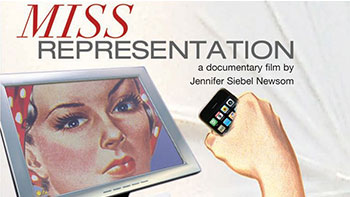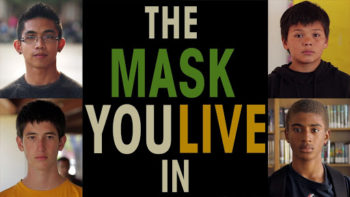Happy Father’s Day from The Representation Project! Fathers in the media are often portrayed in stereotypical and even insulting ways. Since the fathers that we see on screens send powerful messages about this important role, it’s helpful to reflect on how content producers choose to portray dads. Here are our picks for best and worst dad representations in entertainment media.
Viewers are all too familiar with the examples in the media of lackluster (or worse) fathers. It’s time to update some of the more outdated and harmful gender stereotypes about fathers in the media. Here’s hoping that Hollywood phases out these fatherhood tropes:
- Bumbling, buffoon dads—The Simpson’s Homer Simpson and Modern Family’s Phil Dunphy types. We’ll keep the dad jokes, but it’s time to retire the notion that fathers like these (often with mothers present in the home) are helpless. They’re not.
- Hyper-masculine action hero dads—Bruce Willis’ character in Die Hard and Liam Neeson’s character in Taken, among others. Obviously, these film fathers are wildly entertaining in suspense movies, but the fantasy they perpetuate of dads as rescuers-in-chief sends the wrong message.
- Man-child fathers who grow alongside their children—Ethan Hawke’s character in Boyhood and Robin Williams’ character in Mrs. Doubtfire. Sure, these dads present a great arc in filmmaking with character development over the span of a couple of hours that can make audiences tear up by the end credits, but they make light of the responsibility of fatherhood. And they conveniently shift the burden of parenting to their more capable and mature co-parents.
We need better models of manhood and fatherhood in the media. Thankfully there are many examples of thoughtful, complex fathers in film and television. Interestingly, Hollywood has reserved some of the best examples of fatherhood for solo, single fathers—with a few exceptions. Our top screen fatherhood moments include:
1. Chris Gardner, the single, down on his luck father played by Will Smith in The Pursuit of Happyness, who is an example of a father’s determination, hard work, and prioritization of family above all else.
2. The compassionate, caring dad in Eighth Grade, played by Josh Hamilton who has the perfect response to his angst-riddled daughter’s despondent question to her father: “Do I make you sad?”
3. Glee’s blue-collar, single dad Burt Hummel gave his teenage gay son one of the best sex talks we’ve ever seen, showing the power of the media to portray fatherhood in a loving, emotion-filled, positive light.
4. A partnered father, the dad in Call Me By Your Name also shows audiences what supportive, understanding fatherhood can look like when a child most needs it.
Hooray for Hollywood for bringing us these examples of healthy fatherhood. Future writers need to look no further than the real world to see examples of fatherhood intertwined with healthy masculinity. The world of tennis celebrated fatherhood with a beautiful display of masculinity when player Nicolas Mahut was consoled by his seven-year-old son after suffering a loss at the French Open.
This isn’t the first time the young boy rushed to his father’s side at a pivotal moment. At last year’s French Open, he also ran onto the court to celebrate his dad’s doubles win.
This father and son make an inspirational duo—putting the “love” in tennis.
And if you’re on social media, you likely saw the video making the rounds of this remarkable dad and his infant son bonding during a conversation that will melt your heart.
What these real-life dads have in common is a commitment to exchange with their children what they each most need: conversation, consolation, celebration, and above all else, connection. Our film The Mask You Live In explores fatherhood and masculinity. Featured in the film is single father Stephen who learns how to redefine fatherhood for the wellbeing of his son and their relationship. Enjoy this short video with our best wishes for a very happy Father’s Day to those who celebrate it!



